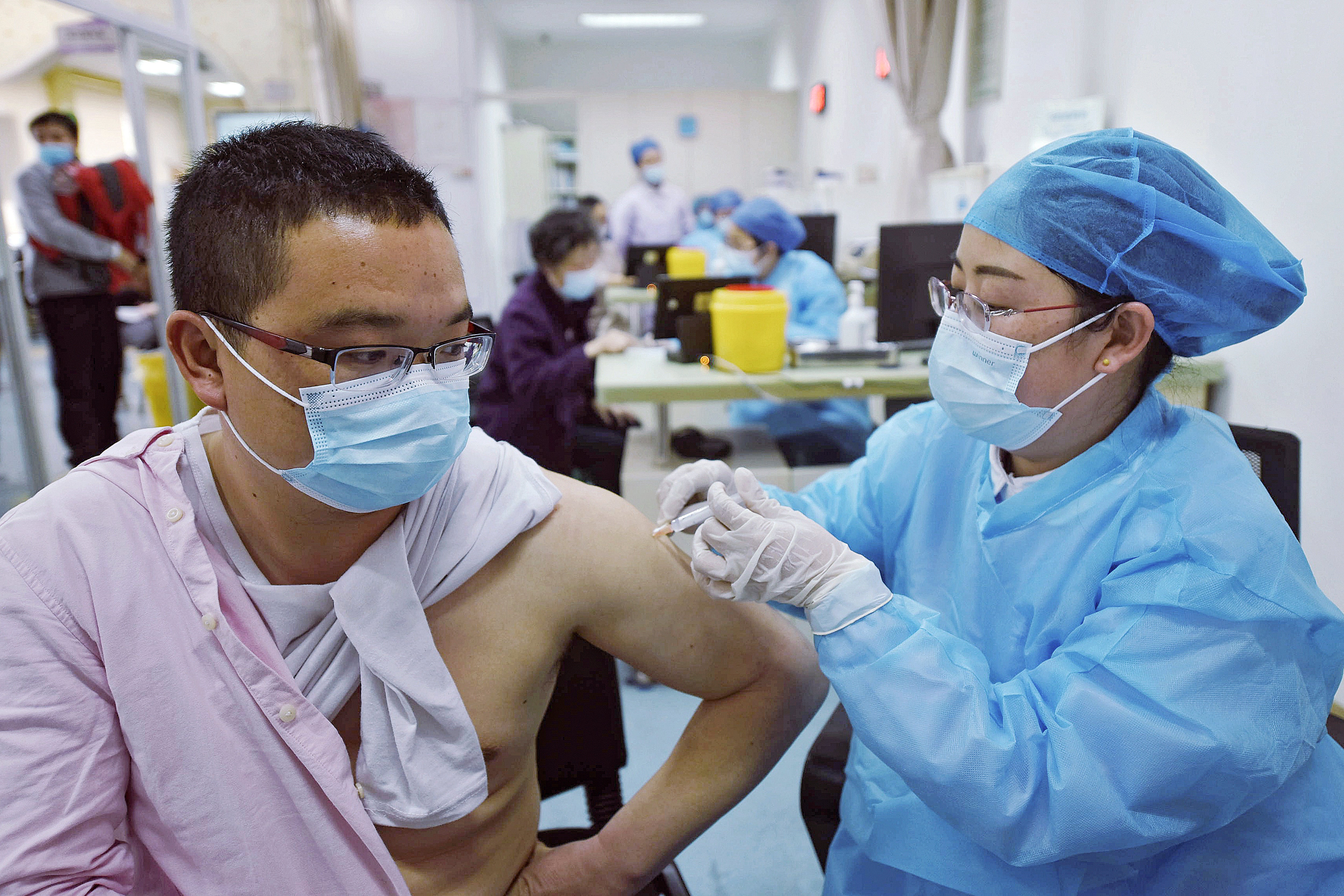Sinovac says its vaccine is safe for children as young as 3
Sinovac says its COVID-19 vaccine is safe in children ages 3-17, based on preliminary data, and it has submitted the data to Chinese drug regulators

Your support helps us to tell the story
From reproductive rights to climate change to Big Tech, The Independent is on the ground when the story is developing. Whether it's investigating the financials of Elon Musk's pro-Trump PAC or producing our latest documentary, 'The A Word', which shines a light on the American women fighting for reproductive rights, we know how important it is to parse out the facts from the messaging.
At such a critical moment in US history, we need reporters on the ground. Your donation allows us to keep sending journalists to speak to both sides of the story.
The Independent is trusted by Americans across the entire political spectrum. And unlike many other quality news outlets, we choose not to lock Americans out of our reporting and analysis with paywalls. We believe quality journalism should be available to everyone, paid for by those who can afford it.
Your support makes all the difference.Sinovac said its COVID-19 vaccine is safe in children ages 3-17, based on preliminary data, and it has submitted the data to Chinese drug regulators.
More than 70 million shots of Sinovac’s vaccine have been given worldwide, including in China
China has approved its use in adults but it has not yet been used in children, because their immune systems may respond differently to the vaccine.
Early and mid-stage clinical trials with over 550 subjects showed the vaccine would induce an immune response, Gang Zeng, the medical director at Sinovac, said at a news conference.
Two recipients developed high fevers in response to the vaccine, one a 3-year-old and the other a 6-year-old. The rest of the trial subjects experienced mild symptoms, Zeng said.
“Showing that the vaccine is safe and would elicit potentially useful immune response against SARS-CoV-2 is very welcomed,” said Eng Eong Ooi, a professor at the Duke NUS Medical school in Singapore who is co-leading the development of a separate COVID-19 vaccine. However, he said the data presented publicly by the company was not enough to give a conclusive answer on the findings.
Children are far less likely to be seriously ill with COVID-19, but they are still at risk and can spread the virus. And while vaccination campaigns worldwide have focused on adults, children will need to be immunized to end the pandemic.
The Pfizer vaccine is cleared for use starting at age 16 and is being studied in ages 12-16. Moderna has been studying its vaccine in children aged 12 and older and last week announced a new study testing its use in children younger than 12.
State-owned Sinopharm, who has two COVID-19 vaccines, is also investigating the effectiveness of its vaccines in children. The company said in January it had submitted clinical data to regulators, though it was unclear if it was for one or both vaccines.